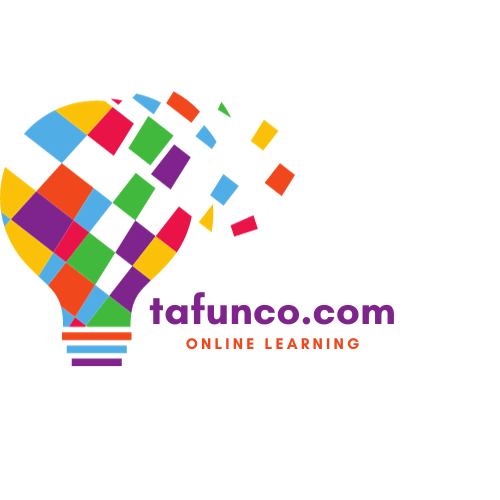The emergence of online education has revolutionized our approach to education by providing never-before-seen levels of accessibility to information and removing geographical constraints. The digital revolution has created new opportunities for education, but it has also brought with it a number of difficulties, chief among which is the evolving nature of academic integrity. In this piece, we examine how the advent of online learning has changed our understanding of what constitutes academic integrity and the steps being taken to address this changing environment.

The Development of Distance Learning
In recent years, millions of students have chosen virtual classes over conventional brick-and-mortar schools, demonstrating the enormous popularity of online education. Online learning platforms’ flexibility and convenience have democratized education by making high-quality courses accessible to students from a wide range of backgrounds. But this move to online environments has presented special difficulties for the traditional understanding of academic integrity.
Academic Integrity’s Obstacles in Online Education
1. Repetitions
The ease with which material may be copied and pasted from the internet has increased worries about plagiarism. With a wealth of knowledge at their fingertips, students might feel pressured to pass off someone else’s work as their own.
2. Cheating During Assessments:
Despite their convenience, online tests include the potential for cheating. Pupils may turn to a variety of strategies, including working with classmates, using unapproved study tools, or even paying someone to take exams in their place.
3. identification Verification:
It might be difficult to confirm an online student’s identification. Making sure the person taking the course is the registered student becomes a major challenge when there is no physical presence.
4. Deception in Contracts:
A practice known as contract cheating has emerged as a result of the growth of internet platforms that connect students with independent authors. Assignments may be paid for by students, which compromises the validity of their academic work.
Taking Care of the Issues:
Academic institutions and online platforms are proactively tackling the obstacles that threaten academic integrity in the online environment.
1. Technological Solutions:
Organizations are using sophisticated plagiarism detection software to spot instances of work that has been duplicated. Additionally, employing tools like screen recording and face recognition, secure online proctoring systems are being used to keep an eye on students as they take examinations.
2. Learning Projects:
In order to support academic integrity, a lot of educational institutions are concentrating on proactive educational activities. This involves educating students about the value of original work, appropriate citation, and the repercussions of dishonesty.
3. Protocols for Identity Verification:
Stricter identity verification procedures, such live video proctoring or biometric identification, may be used to make sure that the student who is enrolled is the one who is really doing the job.
Involvement in the Community:
Dishonest conduct may be deterred by promoting a feeling of community and shared accountability. Students may develop a culture of integrity by being encouraged to speak honestly about expectations for their academic performance and the penalties of dishonesty.
The Function of Teachers in Preserving Honesty:
Teachers are essential in forming the educational experience of remote learners and, as a result, in preserving classroom integrity. It is important to cultivate a feeling of academic responsibility and ethical behavior in addition to using technology solutions. Teachers may create tests that promote critical thinking and introspection, which will make it more difficult for pupils to use dishonest tactics. Moreover, giving prompt and helpful comments might help students grasp the subject matter more deeply and lessen the desire to cheat for grades.
Promoting an Integrity-Based Culture:
Working together, instructors, students, and institutions may create an environment where honesty is valued in online learning. Academic institutions have the authority to create honor codes that specify exactly what constitutes honest conduct and what happens when it isn’t followed. Educating students on the value of integrity and how it relates to both professional and personal growth helps foster a feeling of accountability.
Ongoing Technological Evolution:
Technology and the resources available to support academic integrity are developing simultaneously. To put strong solutions into place, educational institutions must keep up with the most recent advancements in online learning technologies. This might include spending money on personalized, adaptive learning tools that make it harder for kids to depend on other resources for homework.
International Cooperation and Standards:

In order to address academic integrity, there is an increasing need for international cooperation and standards due to the global character of online education. To guarantee that the norms for academic integrity are widely acknowledged and respected, institutions from all over the globe may cooperate on research projects, exchange best practices, and create shared frameworks.
Helping Students Through Adversity
It’s critical to understand the range of difficulties that students might encounter while studying online. Academic pressure, private problems, or lack of experience with computers may all lead to dishonest conduct. Offering academic advice, technological support, and counseling are examples of support services that may help create a more fair and honest learning environment.
Promoting Ethical Consciousness and Digital Literacy:
Students’ digital literacy and ethical awareness are being emphasized more and more in addition to the previously described tactics. Including lessons on responsible digital citizenship in the curriculum helps equip students to behave honorably while navigating the internet. This entails teaching students about appropriate citation practices, the ethical use of knowledge, and the possible repercussions of academic dishonesty in both academic and professional contexts.
Redefining Techniques for Assessment:
An other approach to addressing the evolving nature of academic integrity in online education is to reconsider conventional techniques of evaluation. Teachers should investigate alternate assessment methods that emphasize creativity, critical thinking, and practical application rather than depending only on tests with high stakes. Collaborative assignments, open-book tests, and project-based evaluations might motivate students to interact more honestly with the content and lessen their desire to cheat.
Constant Observation and Modification:
Since the environment of online learning is changing, so too should the strategies used to maintain academic integrity. It is essential that regulations and technology be continuously monitored and adjusted. A more robust defense against dishonest behaviors is achieved by regular assessments of current integrity measures, keeping up with changing trends in online education, and modifying techniques appropriately.
Open and Honest Communication
In order to resolve issues with academic integrity, communication between instructors, institutions, and students must be transparent. Establishing a basis for ethical conduct involves clearly defining expectations, evaluation standards, and repercussions for dishonest behavior. Students who comprehend the significance of academic integrity and its role in their personal and professional growth are more inclined to uphold these values.
Cooperation with Employers and Industry:
Working with businesses and companies is crucial to ensuring that the skills acquired in online education are used in the workplace. Forming alliances that provide practicums, internships, or mentoring might inspire students to take an authentic approach to their studies. Shortcut temptation is lessened as a result of the combination of academics and industrial expectations, which enhances the whole educational experience.
International Cooperation towards Standardization:
Global cooperation to create uniform procedures and rules is becoming more and more necessary as online education crosses national borders. Global legislators, accrediting agencies, and educational institutions may collaborate to create a common framework for maintaining academic integrity in the digital era. This kind of cooperation might include the development of global norms, reciprocal acknowledgement of degrees, and the formulation of moral principles that support fair and equal opportunities for students everywhere.
Highlighting Moral Leadership:
A feeling of ethical leadership must be instilled in the academic community in addition to a focus on students. Academic leaders, administrators, and faculty members need to provide an example of moral conduct and stress the value of honesty. This entails fostering an environment in which teachers value academic integrity, behave with openness, and actively participate in continuing discussions on the moral dilemmas raised by online learning.
Blockchain and AI Technology Integration:

The use of state-of-the-art technology like blockchain and artificial intelligence (AI) may support attempts to maintain academic integrity. AI-powered technologies are more capable than ever at analyzing writing styles, spotting irregularities, and spotting possible plagiarism cases. Because blockchain technology is decentralized and impervious to manipulation, it may be used to protect student information and confirm degree legitimacy, hence lowering the possibility of credential fraud.
Red teaming and ethical hacking:
Institutions may take proactive steps in the context of online education by using red teaming and ethical hacking tactics. White-hat hackers, or ethical hackers, are able to evaluate an online learning platform’s vulnerability by finding possible weak points and places where security has to be reinforced. By taking this proactive stance, organizations may keep one step ahead of those who might try to take advantage of weaknesses for nefarious benefit.
Professional Development and Lifelong Learning:
Promoting academic integrity requires cultivating a dedication to continuous learning and continual professional growth. Institutions may provide training programs, workshops, and seminars with an emphasis on critical thinking, research skills, and the ethical use of technology for both teachers and students. Institutions may foster an atmosphere where everyone is capable of navigating the ever-changing obstacles of online education with integrity by consistently upgrading the skills of the academic community.
Technology and Ethics at Their Intersection:
One of the main themes in discussing the evolving nature of academic integrity is the entwinement of ethics and technology. The creation and use of educational technology should take ethics into account as online learning develops. This entails using ethical design principles to make sure that technology not only efficiently distributes information but also fosters an environment of academic integrity.
In summary:
Upholding academic integrity becomes essential to guaranteeing the worth and legitimacy of online degrees and certifications as online education continues to change the face of education. Proactive steps and developing technology are assisting educational institutions in adjusting to the shifting dynamics of academic honesty in the digital era, even if problems still exist. The education industry may effectively handle the hurdles presented by online learning and maintain the standards of academic quality by cultivating a culture of honesty and using new solutions.



